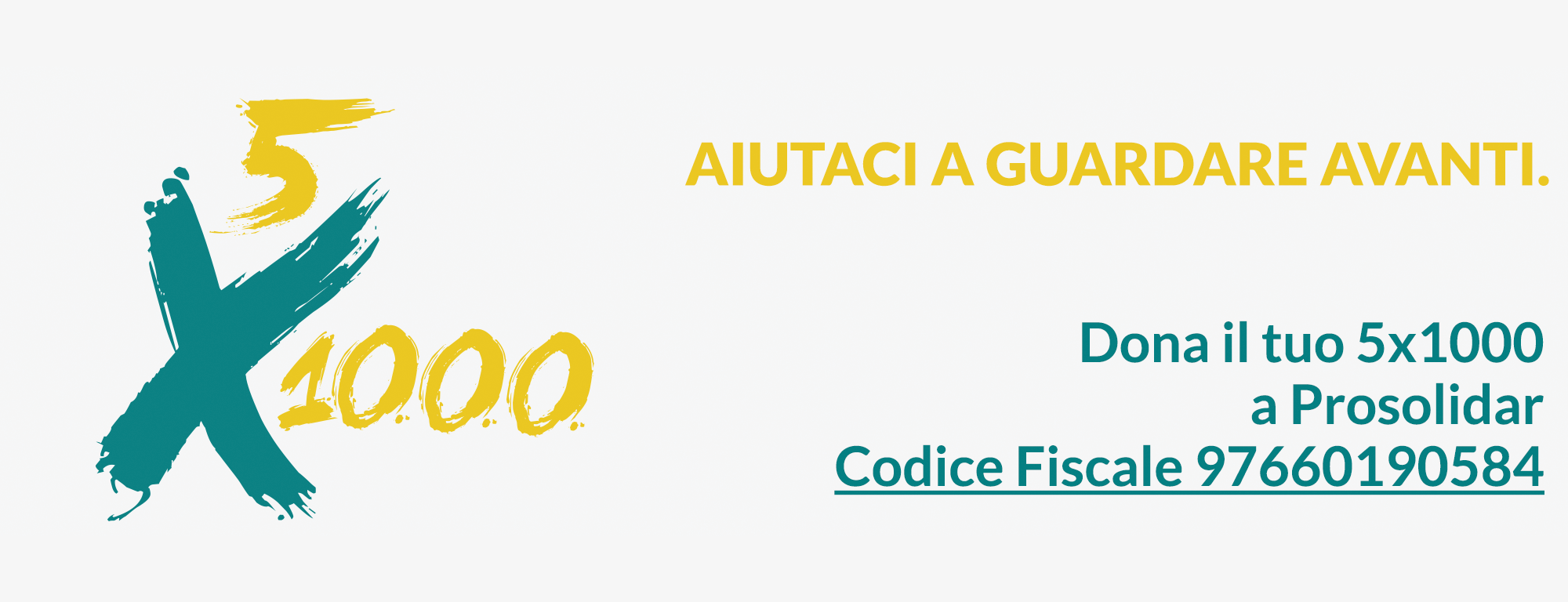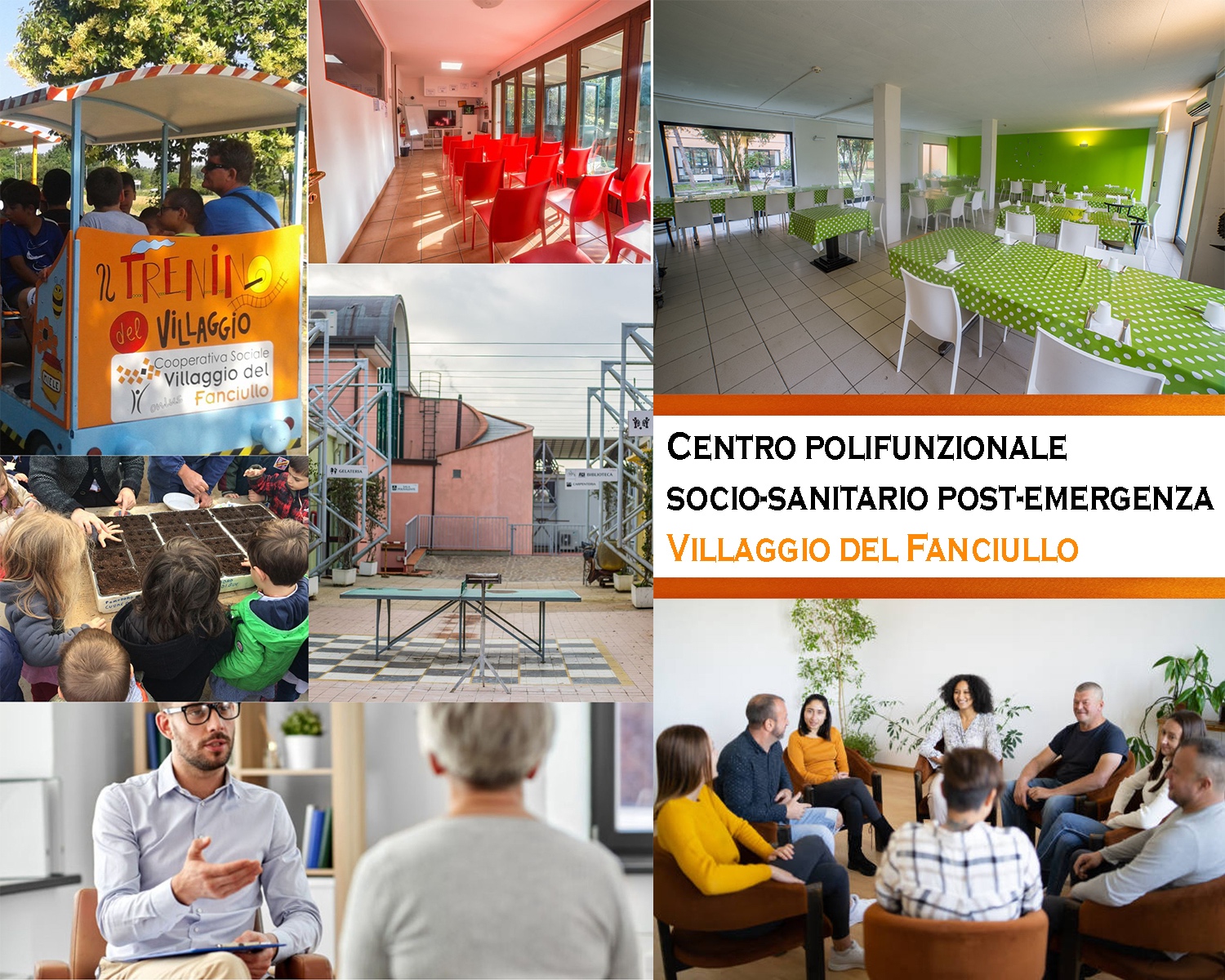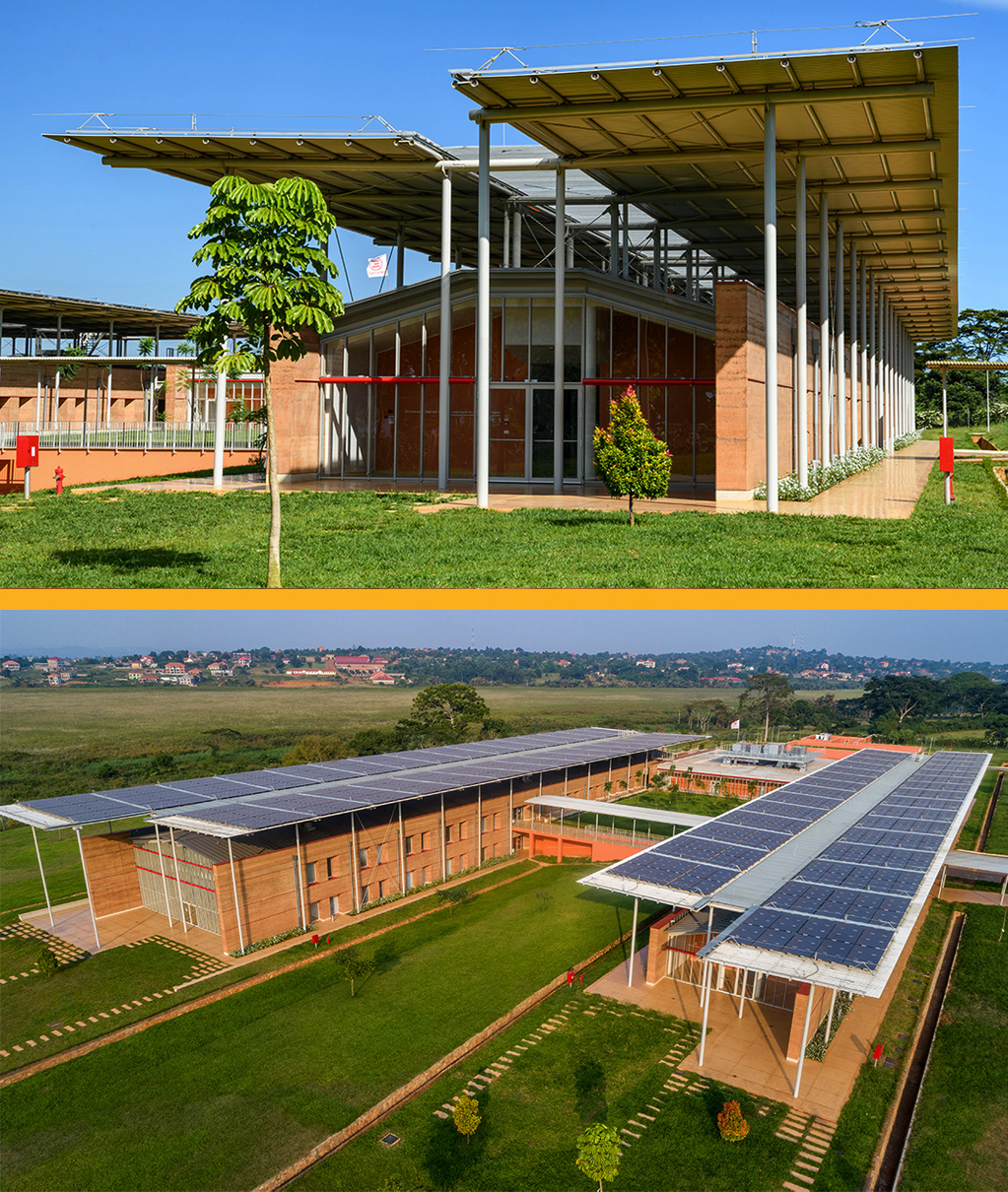| 2007 | 2008 | 2009 | 2010 | 2011 | |
| Number of projects financed |
8 | 8 | 8 | 20 | 41 |
| Amount | 616.334 € | 419.476 € | 345.000 € | 1.103.305 € | 2.507.224 € |
Scopri come i nostri risultati sono resi possibili grazie al sostegno dei lavoratori nel settore del credito che rinunciano a meno di un caffè al mese (10 euro l'anno), insieme alle aziende che versano l'equivalente. Hai mai pensato che si potesse fare cosi tanto con cosi poco?? Esplora la sezione Progetti
Vi ricordiamo che le donazioni pervenute sono detraibili ai sensi di quanto previsto dall’art. 83 del D. Lgs. 117/17 (“Codice del Terzo Settore”)


2 maggio 2023. La Romagna viene colpita da un’alluvione che causa danni ingenti e che colpisce l’intera popolazione. Case distrutte, asili, scuole, centri sociali invasi dal fango, strade, luoghi pubblici completamente inagibili, centri sanitari e attività commerciali riaperti solo qualche mese fa. La Romagna si fa forza. Grazie a tantissimi aiuti, la popolazione reagisce.
La fase acuta dell’emergenza finisce. La maggior parte delle strutture, case, centri colpiti dall’alluvione sono, ad oggi, riqualificati e hanno così ripreso le loro routine, riconquistato le loro certezze. Rimane però completamente scoperta la fase del post emergenza: la cura delle relazioni educative, l’importanza della salute mentale, il diritto di bambini e ragazzi, appartenenti a famiglie con scarse possibilità economiche che ad oggi, a causa dell’alluvione, si sono ulteriormente ridotte, di accedere a servizi educativi extrascolastici.
Fondazione Prosolidar ha deciso in questo contesto di supportare il progetto di Fondazione Nuovo Villaggio del Fanciullo di Ravenna, relativo alla creazione di un centro polifunzionale socio-sanitario (AD ACCESSO GRATUITO) all’interno di spazi già presenti, aperto al territorio di Ravenna e provincia capace di fungere da punto di riferimento per bambini (dai 3 ai 12 anni), adolescenti (dai 13 ai 18 anni) e famiglie che presentino una certa vulnerabilità emotiva causata dai danni subiti dall’alluvione di maggio 2023.
Il centro sarà gestito sia da professionisti interni della Fondazione Nuovo Villaggio del Fanciullo tra cui psicoterapeuti, educatori, mediatori culturali che da professionisti esterni come formatori, professori universitari e supervisori. Il Centro lavorerà su più livelli di intervento: dai servizi specialistici in ambito di psicologia dell’emergenza, psicoterapia, pedagogia e formazione alla organizzazione di servizi educativi extra-scolastici come centri estivi e doposcuola.
Dicembre 2021
I lavori di costruzione e allestimento di un ospedale di eccellenza nel settore della chirurgia pediatrica a Kampala, fortemente voluto da Gino Strada e firmato da Renzo Piano, si sono conclusi al termine del 2019.
A causa della pandemia mondiale l'avvio delle attività è stato rimandato più volte, ma finalmente ad aprile 2021 l’ospedale ha iniziato a ricevere i primi pazienti e lavora ad oggi a pieno regime.
Venerdì 5 novembre si è tenuta una cerimonia formale di inaugurazione dell’ospedale da parte del Governo ugandese; a causa delle restrizioni Covid molto rigide alla ceremonia ha partecipato un numero molto ristretto di persone. E' in previsione un inaugurazione formale ad aprile 2022, se le condizioni lo consentiranno.
L’ospedale, realizzato a Entebbe su un terreno di circa 120.000 mq donato dal Governo dell’Uganda, costituisce un modello per l’intera Africa orientale non solo dal punto di vista sanitario, ma anche dal punto di vista architettonico e della progettazione. L’ospedale in Uganda, come il Centro Salam in Sudan, mette in pratica il modello di sanità sostenibile di EMERGENCY, basato sui principi di Eguaglianza, Qualità e Responsabilità Sociale (EQS).
La Fondazione Prosolidar ha investito un totale di 3.180.000 euro (di cui 200.000 del Fondo) destinati al blocco operatorio.
Clicca per vedere le foto del progetto
Vedi il progetto sul sito di Emergency
https://www.emergency.it/progetti/uganda-entebbe-centro-di-chirurgia-pediatrica/

The maps shown below provide the locations of the projects financed by the Foundation, both in Italy and the rest of the world. Emergency initiatives are marked in red, completed projects in yellow and projects still underway in blue.
Prosolidar’s activities are summarised herein with graphic presentations illustrating the relative incidence of the fields in which its projects are concentrated. The figures refer to the calendar year 2016.
An overview of the projects was obtained by classifying each initiative financed under the following categories:
SECTOR OF INTERVENTION: the operating sector in which the project’s objective is to be achieved, such as:
BENEFICIARIES: those whom the project is designed to help:
GEOGRAPHIC AREA: the part of the world in which the project is performed (indicated in detail for projects in Italy)
The data used as the input for drawing up the graphs were the amounts disbursed from January to December 2016.
Levels of project financing were established to analyse the distribution of the projects by amount. The percentages of total financing accounted for by the different categories proved to be fairly uniform, whereas the distribution by number of projects showed noteworthy divergences.
Unlike the preceding graphs, these regard the percentage of the total project cost covered by the financing.
Of particular note is the fact that 1/3 of the funding efforts cover 100% of the related project cost. Another very significant category is financing that covers from 20% to 50% of the total project cost, while financing for up to 20% accounts for only a negligible portion
Since the beginning of the Foundation's work, 145 projects have been completed, of which distribution is shown over the years. There is a progressive increase in completed projects.
The financial analysis of the projects regards the 2015 calendar year as opposed to the balance-sheet year, for administrative reasons, and yet it still illustrates the volume of the Foundation’s annual activities.
The projects were classified to obtain an overview, with the classification for each initiative based on the following criteria:
AREA OF INTERVENTION: meaning the sector in which the project was to have an effect, based on which its objective was set. For example: food, water-hygiene, health...
BENEFICIARIES: those for whom the project was undertaken: children, the sick...
GEOGRAPHIC AREA: the part of the world in which the project was carried out (with a detailed look at Italy)
The following graphs used as input the figures for the contributions disbursed for each project by the date of 31 December 2015.
Another result analysed was the cost range in euro for each financing effort, to get an idea of the economic distribution of the projects. The analysis of the distribution by financing levels was carried out, instead, on the basis of earlier figures for the amounts committed to each project, regardless of whether or not they were actually disbursed; this result was visualised both in terms of the number of projects and on an economic basis. As can be observed, though there are noteworthy differences in the distribution of the numbers of the projects, the distribution of the amounts is fairly even.
Since it began its activities, the Foundation has completed 97 project whose distribution over the different years is illustrated, pointing to a gradual increase in the number of projects completed.
This demonstrates that there was ongoing improvement in organisational capacity, even though the only figure provided is the number of projects. Then again, the administrative effort for the smaller projects is the same, if not greater.
After a careful analysis of the 367 projects received by the Foundation by last October 2022, the Council, in the session of 01/26/2023, approved 53 projects for a total funding of € 1,463,955.00 in 2023 and € 217,377.00 in 2024.
In this way, all the funds available for the current year have been committed: consequently there will not be a spring evaluation session and the next applications for funding can be sent starting from next September, valid for the year 2024.
Documentation that constitutes a full and integral part of the operating agreement that the association shall be called upon to sign, together with Prosolidar. The associations are urged to examine it before presenting a project, so as to be fully aware of what the Foundation requires.
Once the project has been approved, all the pages of the Guidelines must be initialled and the ORIGINALS must be sent to the Foundation. The various controls that the Foundation reserves the right to carry out, and with which the associations must cooperate, include on-site monitoring, which can consist of both controls of technical–accounting content and assessments of the consistency of the approved project with its actual performance. This control may also be carried out at a subsequent point in time, following completion of the project, in order to determine whether, even with the passing of time, efforts have remained consistent with the original objectives.
The PROSOLIDAR FOUNDATION – A NON-PROFIT ENTITY is a organisation established under the initiative of the National Fund of the Banking Sector for Projects of Solidarity – a non-profit entity from which the Foundation has inherited its cultural heritage and founding principles.
The PROSOLIDAR FOUNDATION is a secular, independent organisation recognised as a non-profit entity and active in both Italy and the rest of the world. It is the first and, as things stand today, still the only instance, even on the international level, of an organisation founded by the sectoral social partners and financed through "match-gifting", meaning joint, equal contributions workers and employers. The contribution of each individual is equal to 6 euro a year.
Within the Foundation, all the union organisations of the banking sector are represented on a equal basis (through their national secretaries offices), as well as all the member banks of the Italian Banking Association, together with the Italian Banking Association itself.
----------------------------
The IBAN code for making ordinary deposits is IT87K0627003274CC0800139456. When specific funding drives are organised, the related deposit procedures will be indicated on each separate occasion.
THE PROSOLIDAR FOUNDATION was founded in 2011, but its history has deeper roots, being the outgrowth of an initiative of the "National Fund of the Banking Sector for Projects of Solidarity – a non-profit entity", from which the Foundation inherited its cultural heritage and its founding principles, as well as its financing procedures. The Fund was established on 13 January 2005 under a memorandum of understanding signed by all the unions of the banking sector and by the Italian Banking Association and later supplemented with a subsequent agreement of 5 July 2010. The Fund was the outcome of years of activity with projects of solidarity that the proponents eventually decided to place on a permanent basis. Here are some figures on the projects carried out by the Fund prior to the establishment of the Foundation:
| 2007 | 2008 | 2009 | 2010 | 2011 | |
| Number of projects financed |
8 | 8 | 8 | 20 | 41 |
| Amount | 616.334 € | 419.476 € | 345.000 € | 1.103.305 € | 2.507.224 € |
In compliance with cultural and ethical principles of pluralism, cooperation and peace between the peoples of the world, as well as justice and solidarity, and in the service of a human community founded on the values of fraternity and equality, on respect for human and social rights, Prosolidar pursues only objectives of social solidarity, achieving through concrete, practical initiatives the goals contemplated under art. 3 of the company by-laws. Whether in Italy or abroad, operating without any constraints whatsoever, Prosolidar contributes to enact projects of solidarity promoted by non-profit organisations, and support, among other efforts, structural and infrastructural projects meant to bring into being initiatives whose progress can be measured and which will last over time. To this end, Prosolidar operates without locking itself into specific thematic approaches or geographic areas of preference for its efforts: its approach has allowed to support initiatives of solidarity in the broadest sense of the term, including assistance to the types of small-scale organisations that all too often find themselves outside of the “big league” of non-profit circuit. The Foundation follows stringent criteria in selecting its partners and defining its objectives, which must fit into the satisfaction of as far-reaching a need as possible, benefitting not only direct recipients and their families, but the community as a whole.
The Foundation, in accordance with its mission it has set :
Prosolidar interfaces with everyone involved in its activities, and especially with all the individuals or groups, plus all the organisations and institutions that represent them, whose interests are influenced, either directly or indirectly, by the Foundation’s activities.
